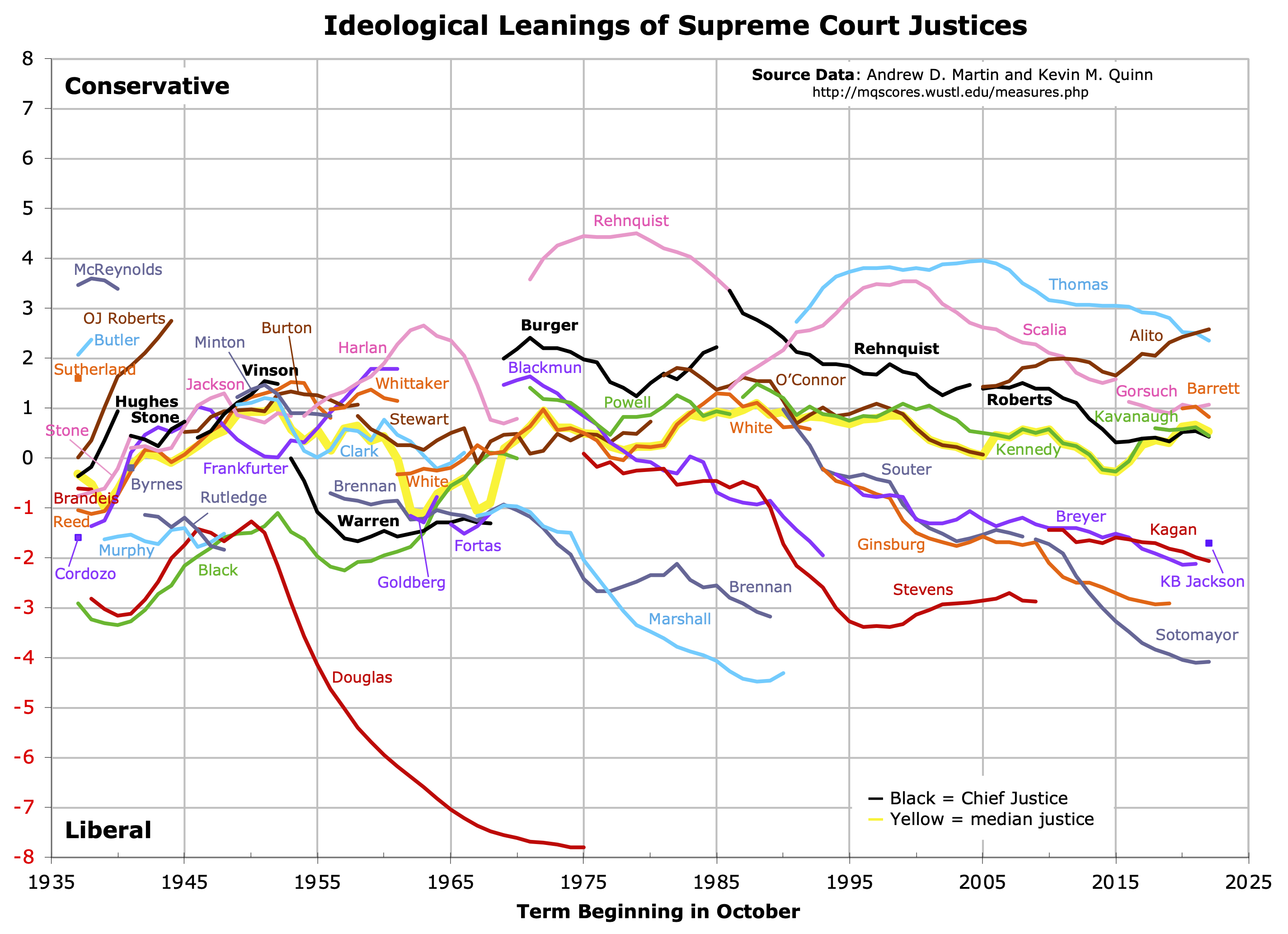Martin–Quinn Score on:
[Wikipedia]
[Google]
[Amazon]
Martin–Quinn scores or M-Q scores are dynamic metrics used to gauge the ideology of a U.S. Supreme Court Justice based on their voting record. Therefore, a jurist's score will continuously change, unlike static measures of ideology such as the Segal–Cover score and Judicial Common Space score. Martin–Quinn scores are among the most commonly used measures of judicial ideology.

History and method
The concept of the Martin–Quinn score was published in a 2002 paper byAndrew D. Martin
Andrew D. Martin (born July 25, 1972) is chancellor and professor of political science and law at Washington University in St. Louis.
As an academic, Martin has contributed widely to the areas of judicial politics, quantitative political methodo ...
and Kevin M. Quinn. The Martin–Quinn score uses Markov chain Monte Carlo (MCMC) methods to fit a Bayesian model of ideal points. The ideal points can change over time due to the item response model. MQ scores are theoretically unbounded (have no minimum or maximum values). MQ scores are dynamic, as each decision made by a judge creates another data point that can be integrated into the model. The MQ score places the justices on a continuum of more liberal to more conservative. As of 2007, scores roughly ranged between -8 and 4, with the lowest score of about -8 attributed to William O. Douglas (tenure on the USSC from 1939 to 1975) and the highest score of about 4.5 attributed to William Rehnquist (tenure from 1972 to 2005). The largest shift in score between judges on the same Supreme Court seat since 1953 came when Thurgood Marshall (tenure from 1967 to 1990) was replaced by Clarence Thomas.
Ward Farnsworth
Ward Farnsworth (born 1967) is Professor of Law and holder of the W. Page Keeton Chair at the University of Texas School of Law, where he was Dean from 2012-2022. He served as Reporter for the American Law Institute’s Restatement of the Law T ...
wrote that while the MQ model has ingenuity and promise, it falls short of proving what it aims to. He criticized the methodology of MQ scores, saying that MQ scores only take into account whether a judge affirms or reverses a ruling, and not the ideological outcome their action supports. In part, "the relationship between the spectrum generated by the artin–Quinnmodel and the spectrum of policy decisions in the real world is a matter of guesswork. There is no inherent relationship between them.
Application
MQ scores were initially developed to measure and compare the ideological leanings of current and former U.S. Supreme Court justices. They have since been applied to the judicial systems of other countries, including Argentina, Belgium, Brazil, the Philippines, Portugal, Spain, Taiwan, Turkey and the United Kingdom.
References
Supreme Court of the United States Political spectrum Rating systems Political science {{DEFAULTSORT:Martin-Quinn score